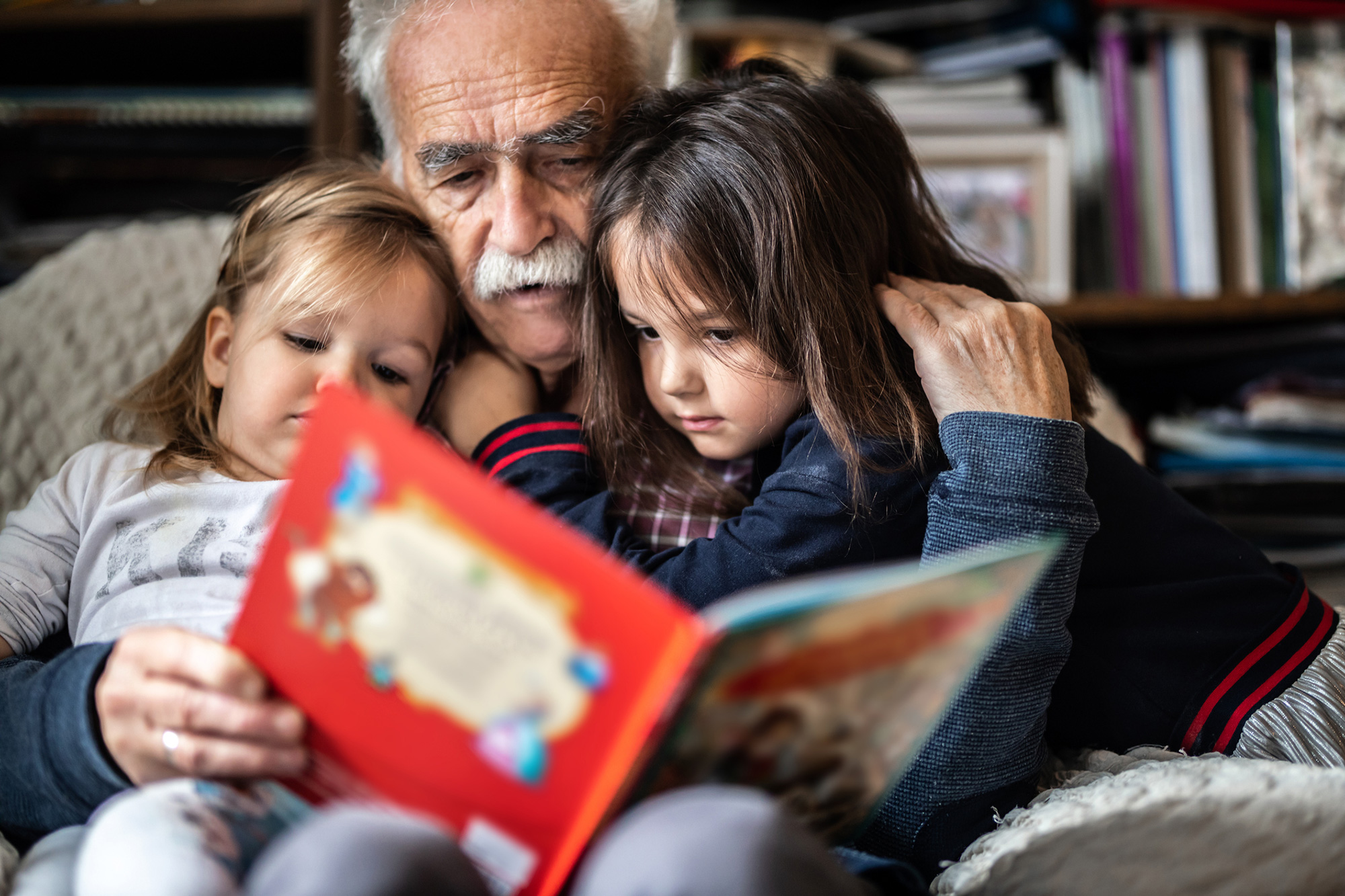Hungry Minds: Activities to Support Early Language and Communication

Our Director of Early Childhood, Caroline, shares fun activities that will help support your child’s early language and communication skills.
Many things light up hungry little minds. Children love it when you chat, play, and read with them, even when they’re too young to understand everything. Whatever the time, and wherever you are, you can turn almost anything into a game.
Even the smallest things you do with your child can make a big difference to their language and communication skills. Taking time to practice some of these activities will help to set them up nicely for the day they start school, so that they are confident communicators from the start.
Ideas for 2 – 3-year-olds
In Your Routine:
- Do daily tasks with your child. Talk about what you are doing and why you are doing it. When hanging up the washing, you could say ‘The clothes are wet, let’s hang them up to dry.’
- Give your child simple tasks like passing you the socks or getting things out of the cupboard or fridge when you’re preparing dinner. Praise them for helping.
On the Go:
- When you’re out and about, build on what your child says about what they can see – so when they say, ‘Big bird!’ you can say, ‘Yes, it’s a big, noisy bird called a crow’.
- Talk to your child about what has happened so far in the day – for example, ‘We went to the shops this morning, didn’t we? We bought some apples.’ And talk about what is going to happen next – ‘After lunch we’ll do the washing up.’
Other Ideas:
- You could make a photo-book of funny, or memorable family events and talk about it with your child.
- Sing songs together that encourage your child to use their imagination. For example, try singing The Wheels on the Bus and ask your child to suggest other things on the bus and describe what sound they make.
- Have a go at Makaton together and learn to sign to some of your child’s favourite nursery rhymes. Here’s a couple to get you started: Jack and Jill and Pat-a-Cake.
- Read picture books together. Talk about the things they can see and how we use them. For example, ‘A bed is something we sleep in.’
- Use books to talk about your own experiences, and theirs, giving them time to respond. ‘Oh look, the boy is at the park. We went to the park yesterday with Granny.’
Ideas for 3 – 5-year-olds
In Your Routine:
- Try sharing familiar books at bedtime. Pause when reading so that your child can join in. Talk about the sounds at the beginning of words and words that start with the same sound (like words beginning with P).
- Encourage your child to recall what has happened in the story. For example, ‘Why is bear feeling sad?’ Ask them to guess what might happen – ‘What should they do next?’ – or how the story might end – ‘Do you think they’re going to find the treasure? Where could it be?’
On the Go:
- When you’re out and about, talk to your child about what they can see. Play games like, ‘I spy with my little eye something beginning with…’ and say the first sound of the thing that you can see – ‘something beginning with b-b-b-b.’ You can go first and show your child how the game works.
- Go on listening walks - in the garden, in town, to the park – anywhere. Every now and again, close your eyes and listen – what can you hear? What do you think is making that sound?
Other Ideas:
- Try role-playing games together such as shopping. Set items out on the sofa, give your child a bag and some pretend money. Then switch roles and let them be the shopkeeper.
- If your child is due to start school soon, making a photo book with pictures of their new school can be a great way to get them talking, drawing and writing - check out our ‘My School Book’ activity to help them prepare.
- Play teddy bears’ picnic. Put soft toys in a circle and give your child a few cups and spoons. Give your child a chance to tell you what to do, for example, ‘Stir teddy’s tea.’
- Plan a treasure hunt game, where your child has to listen to your instructions to find a clue or an object. For example, ‘Try looking behind the sofa’.
Further Resources:
You can find out more information and get more ideas and activities to do with your child from the following websites:
- Small Talk – ideas and activities from the National Literacy Trust.
- I CAN – for more information about children’s communication.
- Small Steps, Big Changes – for more information about building young brains.
- NSPCC provides free ‘brain-building tips’ for children.
- Bilingualism Matters provides information about children learning more than one language.
- Royal College of Speech and Language Therapists can provide support if you’re worried about your child’s speech and language development.





